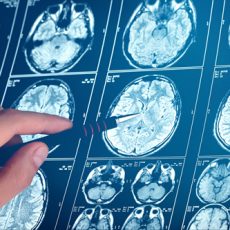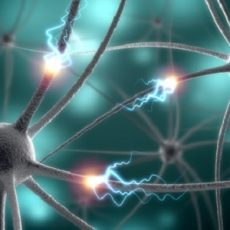
It is estimated that about 80% of the population in the developing world uses some form of herbs to treat common medical conditions. The western world is also shifting towards natural therapies, wishing to avoid the overwhelming side effects that come with pharmaceuticals.
Natural remedies which constitute herbs are classified as complementary and alternative medicines (CAMs) and we are seeing significant sums of monies being channeled towards research in this area. This article reviews herbs that are therapeutic and that specifically target the brain.
Why is brain health important?
Before we get to the herbs it is important to first understand why brain health is important.
The brain starts developing from the neural tube by week six following conception. It will continue to develop until around the age of 25.
Throughout life, the brain controls all the important functions of living such as breathing, circulation, feeding, and movement among others. That is why a brain dead person is sometimes referred to as a “cabbage.”
When the brain is in an unhealthy state, we run the risk of losing control of the very functions that make life possible and this limits our capacity to enjoy life. That is why it is very critical to maintain a healthy brain.
What Destroys our Brain Cells?
As we age, our brain cells begin to deteriorate and lose some function; this is referred to as neurodegeneration. This often occurs due to: the accumulation of toxic substances in the brain such as proteins and metal ions, oxidative stress, mitochondrial dysfunction and inflammation.
When brain cells are destroyed the resulting set of conditions are referred to as neurodegenerative diseases. With longer life expectancies, we may soon experience an epidemic of the same.
How Do Herbs Protect The Brain?
Herbs, just like medicines contain compounds that influence important processes in the brain. They also provide nourishment for brain cells and replenish energy stores to allow brain cells to function optimally.
Here are the 10 Herbs That Protect the Brain
1. Sage
Sage is an herb that is mostly used to spice soups, meats and sauces. It has been used to treat Alzheimer’s disease with good success rates. A study published in Pharmacology, biochemistry, and behavior in 2003 showed that it is essential in improving memory.
2. Turmeric
Turmeric herb contains a therapeutic compound known as curcumin. Curcumin has anti-oxidant and anti-inflammatory effects and both these properties are vital for brain health. It has also been shown to potentially treat Alzheimer’s by removing toxic proteins (beta-amyloid) from the brain. These proteins may be responsible for the development of Alzheimer’s disease.
3. Gotu Kola
Gotu kola is famously used as a healing herb in Asia and India. It works as an adaptogen, helping the brain to deal with stress. It also helps in memory retention.
4. Rosemary
This is a common herb the world over, mostly used in marinades. It is also used in spas as part of the essential oils for aromatherapy. It has deeply relaxing effects on the brain and is a potent brain-booster. Inhaling the smell of rosemary stimulates brain cells and increases learning ability. It also helps in memory retention.
5. Vacha
Vacha is also commonly found in Asia and India. It helps to detoxify the brain of harmful toxins as well as improving concentration. It is also a stimulant and can be used to treat mood disorders.
6. Huperzine-A
This is a Chinese herb that has shown great potential in the treatment of degenerative disease. It destroys acetylcholinesterase to allow acetylcholine to perform its functions. Acetylcholine is a neurotransmitter that transmits information from one brain cell to another. With this, huperzine-A boosts brain function and enhances memory retention.
7. Ginkgo Biloba
Overlooking the tongue-twister name, this herb has been used for centuries to enhance mental function. It stimulates the regeneration of new brain cells and may help in restoring brain function after the onset of degenerative disease.
8. Ginseng
Ginseng is a popular herb commonly used to treat colic in babies. It has its origins in India but is now popular in many parts of the world. It contains compounds known as ginsenosides that have potent anti-inflammatory properties. Gingenosides also eliminate beta-amyloid plaques that are implicated to trigger Alzheimer’s disease.
9. Thyme
Thyme plays a critical role in brain protection because it contains compounds that are important for brain function.
Docoshexanoic acid (DHA) protects the brain against cognitive decline. It also improves cognitive ability.
Apigenin stimulates the formation of new brain cells.
Are Herbs All You Need to Protect Your Brain?
The short answer is no. You need to couple this with other neuroprotective and neuroregenerative measures. Also, remember to consult with your physician before embarking on any natural treatment for neurodegenerative disease.
Links
1.https://www.medicalnewstoday.com/articles/53700.php 2.https://www.ncbi.nlm.nih.gov/pubmed/25701919 3.https://www.hindawi.com/journals/bmri/2018/1843142/ 4.https://www.ncbi.nlm.nih.gov/pmc/articles/PMC5758353/ 5.https://www.ncbi.nlm.nih.gov/pmc/articles/PMC5664031/



